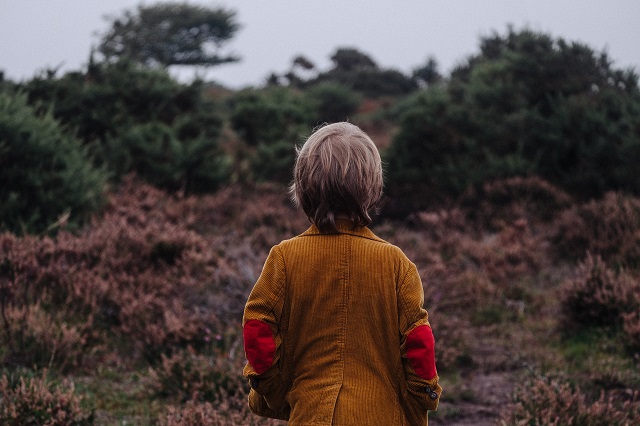I don’t recall knowing what recycling was when I was growing up.
The closest we got to it was saving our empty cans for the five-cent deposit we’d get back when we took them by the sack full to our local grocery store. Even then, it wasn’t about reusing resources; it was about earning a couple of extra bucks to put gas in our station wagons.
More than a few years have passed, and many of us have jumped on board the environmental awareness train. What we’re starting to figure out is that we’ve done more harm in the last 150 years than we managed to do for the previous thousands of years humans have been hanging out on this planet.
Hard truth alert: with our gas-guzzling cars, our insatiable appetite for pesticides and fertilizers, and our laissez faire attitudes about increasingly contaminated and shrinking groundwater supplies (among a growing list of other things), we’ve been big jerks to this Earth of ours, and all of the life on it.
We’re beginning to see that, at this rate, our water and air will be so contaminated that our grandchildren and great grandchildren may be among the last branches of our family trees.
There has to be a better way.
I know I’m just a mom from the Midwest, but maybe it’s about time that a little common sense prevailed over the almighty dollar when it comes to salvaging what can be saved so that our children and grandchildren to have something left.
Here’s what I propose:
1. Let’s live within our means. We have to start by redefining success. It’s not about having money in the bank; it’s about finding deep, meaningful happiness in a more simple way of life.
We’ve developed a taste for bigger houses, more cars, and faster convenience, but we’re also paying for it. We collect huge amounts of debt going to college in order to obtain jobs where we work hours and hours of overtime to afford houses we don’t have time to enjoy, with families we don’t have time to see. We think we need the latest fashions, the most expensive electronics, and the fanciest vehicles, while we forget that what we really need is for our children to have parents who know who they are, and for our marriages and friendships to be a priority.
We have let advertisements and the Joneses decide our values, and we’re lost. How about if we get rid of our need for speed and stuff, and get back to what’s really important?
2. Let’s be mindful about where our food comes from. Several years ago, I picked up a copy of Michael Pollan’s Omnivore’s Dilemma. (Here’s a link to Pollan’s work and an interview with Elephant Journal founder Waylon Lewis.)
Growing up in the country’s bread basket, I thought I had a pretty good handle on the ins and outs of farming that were happening, quite literally, in my own back yard. But between the pages of that small tome, I learned things about agribusiness and our food supply that forever changed the way I thought about those beautiful and endless fields of chemical-laden, water-sucking, politically driven feed corn growing all around me.
It also began my continuing quest for finding sustainable, slow food (and more fantastic ways to prepare it) to put on my own table.
We can create our own food and lose our reliance on mass-produced or inhumane food sources. The very fact that over one-third of American crops go to feeding livestock, primarily cattle that were never intended by nature to consume grains, is an abomination. Beyond the health issues we incur as a result, the water used to cultivate these crops is depleting groundwater supplies at an unsustainable level.
Yet, we have simple, affordable technology that allows us to create greenhouses, and seasonal crops and locally raised livestock are available, if not in our own back yards, at farmers’ markets in nearly every city. We have to change our ways, and that begins by being mindful about what we’re putting in our mouths.
3. Let’s focus on alternative energy sources. It’s no secret that oil, coal and natural gas are huge industries (that’s code for “someone’s getting big paychecks”). What’s frustrating is that energy companies make a tremendous amount of money off of the fact that most of us are happy enough with the status quo when it comes to how we heat our houses, cook our food, and fuel our vehicles, regardless of what that means for the environment, or whether or not cheaper, more sustainable sources are available.
At one point, it looked like we were on our way toward something good. When President Carter took office, he put solar panels on the White House. It was a huge move toward creating a sustainable future for our country. But along came corporate influence, which had a lot to gain from non-sustainable energy—particularly, oil, natural gas, and coal. When Ronald Reagan took office, he removed the solar panels and continued to be a champion for foreign oil.
We have choices. From solar electric to solar heating, to passive solar construction, and from wind-powered electric, to energy efficient and renewable materials, we do not need to pay for services and utilities that we can get for free.
We can also create our own sustainable lifestyles. There are so many ways to decrease dependence and lessen our carbon footprint. Composting food waste and composting toilets, recycling, and utilizing alternative auto fuel are just a few examples.
This stuff isn’t just for hippies anymore. It’s becoming mainstream, and it needs to be happening more. We have to choose to live intentional lives. We can change the course of our own lives today, for the lives of our children tomorrow, and for the world.
Let’s make a difference. We can do this if we do it together.
Author: Amanda Christmann
Editor: Catherine Monkman
Photo: Annie Spratt/ Unsplash












Read 2 comments and reply